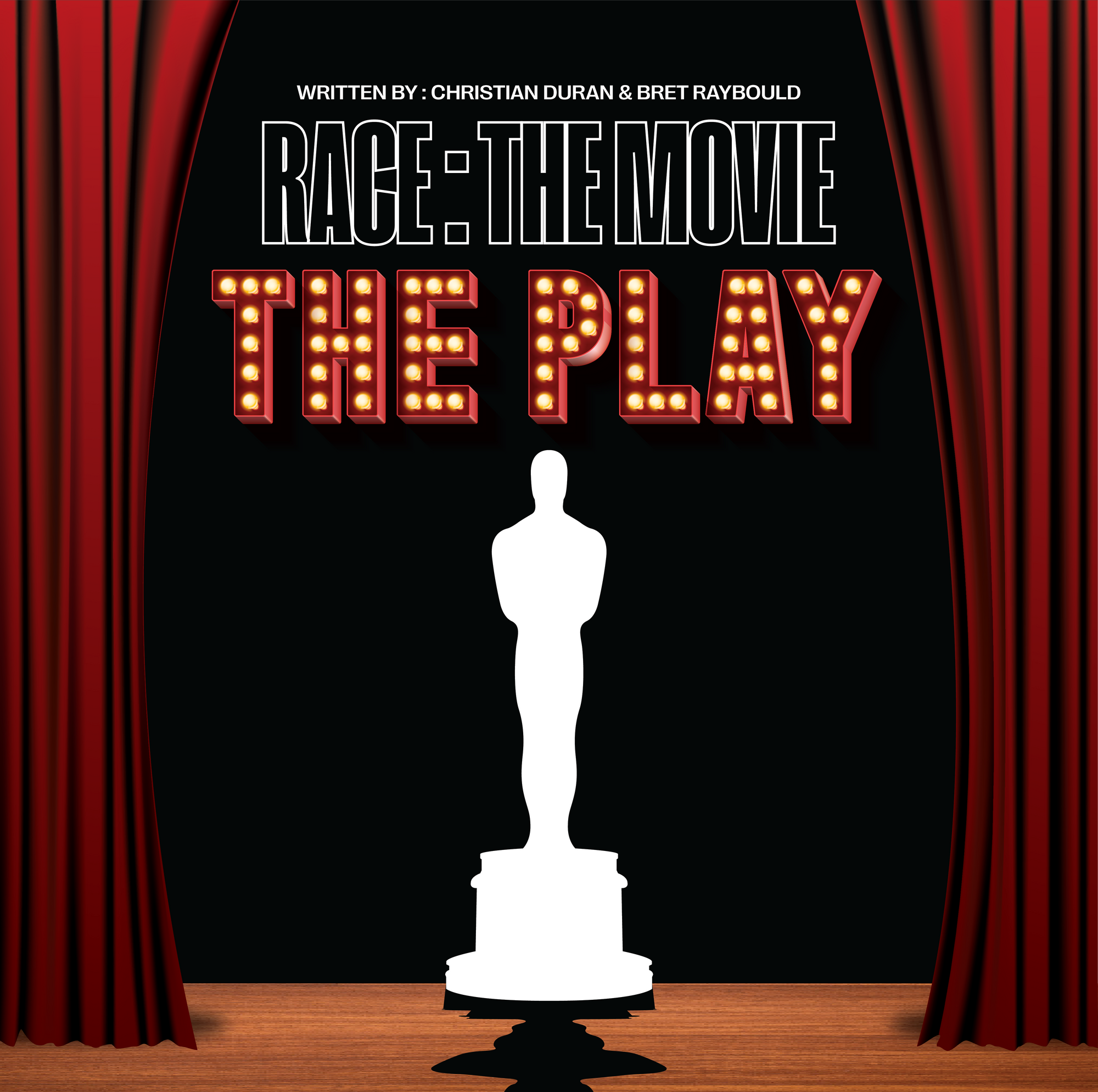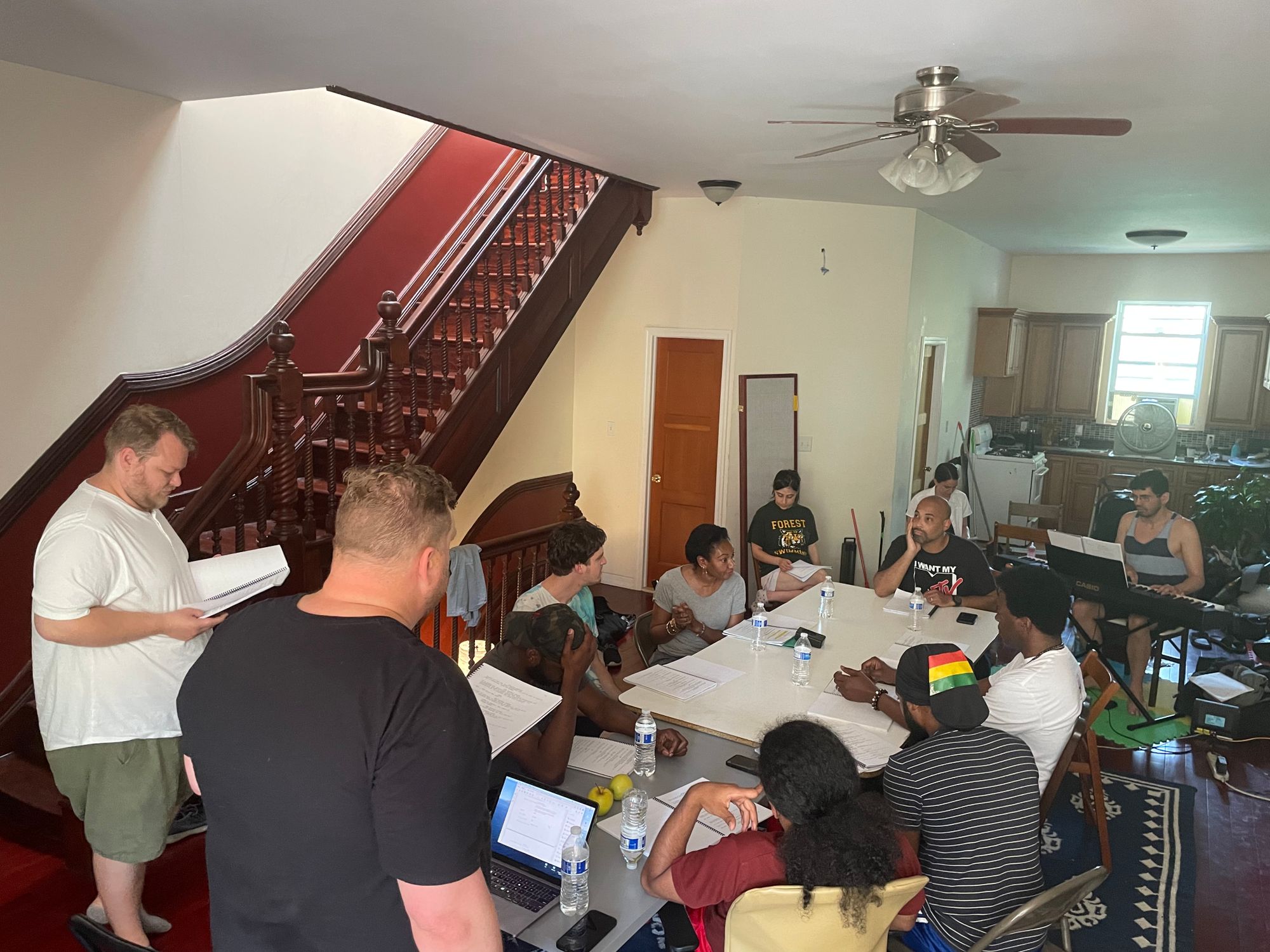
Why We're Doing Our Movie as a Play and Other Lessons in Rejecting Rejection
At the end of 2020, my writing partner Cristian and I got great news: we won a big screenplay competition.
This one in fact.
It was very vindicating, and it gave us hope that maybe our script will get made.
Then, we spent an entire year having it sent out to various managers, producers, and agents. We got back one main note: “It’s really funny, but … it’s a touchy subject.”
That’s because our script touches on the subject of race.
It doesn’t "touch" on it, that’s kind of the main thing it’s about.
The script is called Race: The Movie. It’s a spoof of all of the recent white savior / prestige race movies.
Think Scary Movie but for films like Green Book, The Help, Invisible Figures, Django Unchained, 12 Years a Slave, etc.* It features a white chauffeur named Wyatt Saveyer who is tasked with driving around a brilliant black musician named Gene Yus on his concert tour through the 1850s Deep South.
*If you want to read more about its story/plot click this article here.
It’s silly. It’s slapstick. It’s sometimes smart (hopefully) and other times stupid (definitely).
As the rejections racked up, we felt frustrated: how is no one seeing what we’re seeing? This is the right comedy for the right time, we said to ourselves. It’s got old-school screwball comedy—think Airplane, Mel Brooks—but around a subject matter that has particular relevance to our modern times, so why on earth has no one given us a bajillion dollars to make it?
And then one day, amidst one of our increasingly self-indulgent conversations about how what we wrote is good, Cristian pitched me an idea:
Why don’t we do it as a play?
At first blush, it felt impossible. Neither of us knows anything about, nor anyone in, theater.
Hell, my only theater experience was in 8th grade. I played Angry Guard #2 in the Nativity Parish School production of A Whole New World, which was basically Aladdin, except for legal purposes we couldn’t call it that as you know how Disney is ... If they had found out children somewhere were doing something involving their copyright, they’d have sued the school and beheaded the kids.
The point is, Cristian and I know next-to-nothing about theater.
But the idea stuck. And the more we talked about it, the more excited we felt.
So we adapted it into a play, and thus Race: The Movie became Race: The Movie: The Play.
[Our movie version is now called Race: The Movie: The Play: The Movie and any other accompanying projects will carry a similar moniker such as Race: The Movie: The Play: The Porn Parody or Race: The Movie: The Play: Tokyo Drift]
Now, we’re less than a month away from our first slate of shows for the New York Theater Festival, and I could not be happier with this choice. (To get tickets, click here; unless you're reading this in the future, in which we hope you saw it).
Here are a few random lessons I’ve learned from this experience so far.
LESSON 1: Whatever it takes to do it, then do it, especially if it's a lot more affordable.
Doing it as a play enabled us to actually, well, do it.
Rather than waiting around for some gatekeeper to come along and hand us a bag of money for our passion project, we could make it happen ourselves. (Although, let the record show our passion project has incredible mainstream marketable appeal, so it’s really more of a potentially incredibly lucrative investment just in case any producers are reading this.)
Theater isn’t free. But it sure is a helluva lot more affordable than film, and if that’s what it takes to get our jokes and story out there, then so be it.
And, for what it’s worth, the DIY low budget-edness will only contribute to the comedy, as no audience member actually cares if the costumes look fancy or anything.

LESSON 2: If you write it, they will come.
By they, I mean talent.
Many in film always told me, talent wouldn’t attach themselves to something until there were producers involved.
But fellow artists want to be part of good art. If you have a piece of good art and are actually doing it, you can get incredible people on the project.
For us, that has come in the form of each and every one of our big cast of fourteen performers, which is basically like this Avengers-like assembly of funny people.
From the leader of our cast, a man with over three decades of experience in comedy who can do a thousand faces and a million voices and is an alum of SNL, Dean Edwards, to a soon-to-be-superstar drag queen named Thee Suburbia, I’ve gotten to watch brilliant performers make parts their own and interpret scenes better than how Cristian and I wrote them.
And that’s only two members of our jam-packed-with-talent cast!
I’m not writing about the other 12 people in it just to keep this think-piece rolling!
The main takeaway about our cast: I’m the least talented person in it … and I’m pretty talented! That’s how good this group is!
LESSON 3: Actually doing it is the fun part of making stuff.
Never once in the entire year Cristian and I were writing emails to industry folks did I smile or laugh or say, “Man, Cristian, that line you wrote in that email was amazing.”
But a few weeks into rehearsals I’ve laughed more times than I can count and feel like I’ve made memories that will last with me forever, regardless if anything happens on the career front with this project (which it obviously should because, as I may have mentioned, this thing has such commercial legs, and only an idiot would not throw his life savings into its eventual making).
Everything that has happened that has led to this point I wouldn’t change.
It’s hard to face rejection, but because of it, we’ve had to be resourceful and resilient; we’ve learned lessons and gained perspective, and met some of the most talented people in this city in areas as diverse as comedy, theater, drag, and even bodybuilding.
I constantly feel like we’re flying by the seat of our pants but, hey, at least we’re flying!
Throughout this process of trying to find a way to duct tape together a production, I am reminded constantly of one of my favorite lyrics ever by one of my favorite bands ever, Bon Iver.
“So what if I lose, if I’m satisfied.”
We may “lose” in the conventional barometers of success, but damn it, I’ll be satisfied.

If you’d like to help make this production happen, consider donating to our Kickstarter. Rewards include everything from a video of the production ($25) to a PDF of the script ($100) to even a producer credit ($1000).

